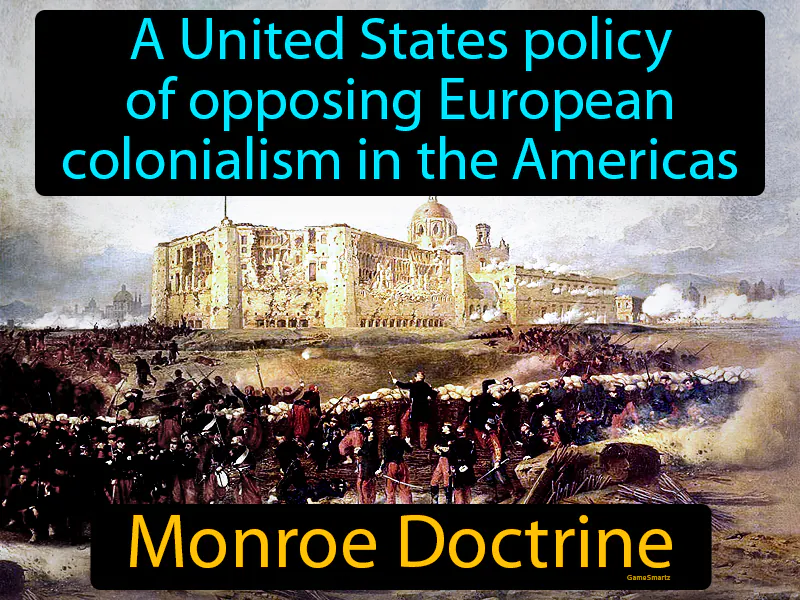Monroe Doctrine
Monroe Doctrine: Easy to understand
The Monroe Doctrine, introduced in 1823 by President James Monroe, was a key policy that warned European nations against establishing new colonies in the Americas. It responded to the fear that European powers might try to expand their influence in the Western Hemisphere, threatening the independence of newly formed nations. At the time, it was important because it asserted the United States' growing role as a regional power and protector of the Americas. Today, the Monroe Doctrine still matters as it laid the foundation for U.S. foreign policy in the Americas, influencing how the country interacts with its neighbors. For example, if a foreign company tried to control a major industry in a Latin American country, the U.S. might intervene to ensure that country remains independent and stable, affecting trade and security for everyone involved.

Practice Version

Monroe Doctrine: A United States policy of opposing European colonialism in the Americas. Monroe Doctrine. The Monroe Doctrine is a U.S. policy that warned European countries against establishing new colonies or interfering in the Americas.